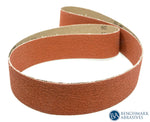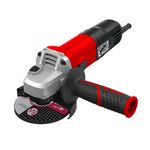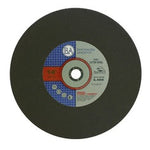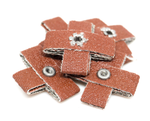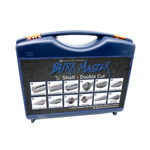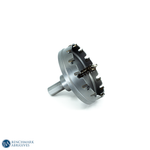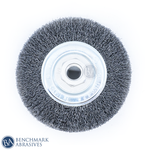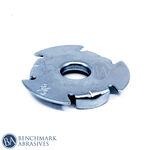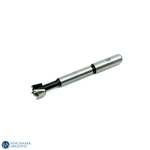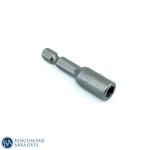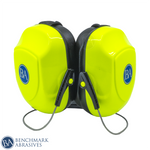
5 Ways To Isolate Dissimilar Metals

In the plumbing and piping industry, the mere mention of different metals coming into contact can send shivers down an engineer's spine. The reason is simple: galvanic corrosion. This electrochemical reaction between dissimilar metals can rapidly degrade pipes, erode pipe supports, and even lead to catastrophic pipeline collapses. Once initiated, this type of corrosion can quickly spread throughout an entire piping system.
Pipe isolation is a critical preventative measure designed to stop corrosion between different metals before it even begins. By effectively segregating metals that are prone to reacting with each other, you can safeguard your pipes and promote a far more durable and reliable plumbing system.
We've outlined five effective strategies for separating different types of metals and strengthening your piping infrastructure.
Why Isolate Dissimilar Metals? Understanding Galvanic Corrosion
Dissimilar metals are those that are significantly different in their electrochemical potential (their tendency to give up electrons). When these metals come into direct contact in the presence of an electrolyte (like water, moisture, or even damp soil), they form a galvanic cell.
In this cell, the more "active" or "base" metal (the anode) sacrifices itself by giving up electrons to the more "noble" metal (the cathode). This electron transfer causes the active metal to corrode, leading to rust, iron oxide formation, and ultimately, weakened or disintegrated metal.
A common example of this is the use of carbon steel as the active anode and stainless steel as the noble cathode. When mixed with an electrolyte, electrons transfer from the carbon steel to the stainless steel, causing the carbon steel to rust and disintegrate. The same process can occur if the characteristics of your pipes and nearby metallic supports or structures differ.
Consequences of Galvanic Corrosion:
- System Shutdowns: Corroded pipes can burst, leading to leaks and operational shutdowns.
- Structural Failure: Weakened metal can cause pipe collapses.
- Safety Hazards: Leaks can create hazardous environments.
- High Repair Costs: Extensive corrosion often necessitates expensive repairs or complete system replacement.
Because of these severe risks, actively separating dissimilar metals is crucial to prevent galvanic corrosion from compromising your entire piping system.
Read More: How to Remove Rust From Metal Tools
What Causes Corrosion Of Dissimilar Metals?
Galvanic corrosion, or corrosion of dissimilar metals, occurs when two electrochemically different metals (an anode and a cathode) are electrically connected and exposed to a conductive environment (an electrolyte).
Galvanic corrosion occurs when two different metals, an anode and a cathode, are electrically connected and exposed to a conductive environment, such as an electrolyte.
As discussed, a common pairing is carbon steel (anode, sacrifices electrons) and stainless steel (cathode, accepts electrons). When these two metals are in contact and exposed to an electrolyte, an electrochemical circuit is formed. Electrons move from the more reactive carbon steel to the more noble stainless steel, causing the oxidation and corrosion of the carbon steel. The rate and severity of corrosion depend on the difference in electrochemical potential, the ratio of cathodic to anodic surface area, and the conductivity of the electrolyte.
5 Ways Of Isolating Dissimilar Metals
Here are 5 effective techniques for separating dissimilar metals and extending the life of your piping system:
1. Galvanized Metal (Sacrificial Coating)
Galvanizing metal is an excellent method for protecting base metals from corrosion without always needing separate non-metallic barriers. The galvanization process involves adding a protective layer of zinc to a base metal, significantly increasing its corrosion resistance.
How it Works: Zinc is a more active (base) metal than many common structural steels and even iron pipes. When a zinc coating is applied to the more basic metal in a bimetallic couple, the zinc essentially becomes the "sacrificial layer." If galvanic corrosion attempts to occur, noble metals will draw electrons away from the zinc layer instead of the underlying base metal of your pipe or base.
Benefits: This additional layer serves as both a sacrificial anode and protects against friction, wear, and scratches, thereby extending the life of the primary metal component.
Read More: What are Ferrous Metals
2. Apply Liners (Non-Metallic Barriers)
If you want to utilize metallic pipe support without galvanizing, how can you keep different metals separate in specific circumstances? You can use composite isolators. Adding a liner to your support may keep the advantages of metal pipe supports without the risk of corrosion. Metallic pipe supports are fitted with pipe support liners. They can be constructed from nonmetallic materials to withstand chemical exposure and intense heat, and cold. Liners can cushion pipes and lessen surface abrasions and separate different metals.
The wide range of materials available makes using liners to isolate pipelines one of the significant benefits. Some commonly used liners are:
- Teflon – Teflon liners allow you to isolate pipelines under challenging circumstances. Teflon can also be fused to pipe supports during manufacturing to create a barrier between the pipe and support.
- Polyurethane – Polyurethane liners are made to endure harsh conditions, including intense heat. The liners can also be made to block UV radiation. In doing so, they can withstand prolonged exposure to the sun and guard against metal-on-metal damage.
- Custom materials like Neoprene, sodium-etched PTSE, and Urethane
- 3. Elevate Piping with Pipe Shoes
Pipe shoes are specialized pipe supports used to elevate pipes off metal structures, corrosive surfaces, or even the ground. This elevation is a direct method of preventing metal-to-metal contact and associated corrosion.
a) Composite Pipe Shoes
Composite pipe shoes are comprised of a non-metallic substance that is incredibly durable. They control movement and raise your metal pipes above the ground. These shoes increase protection in several ways:
- Due to their ability to segregate metals, galvanic corrosion caused by different metals is not a concern.
- They guard against friction-induced pipe degradation. Your pipes slide on a far more forgiving composite shoe than rubbing against rough metallic surfaces. This stops small holes from growing and housing corrosion cells and cracks, and tears.
b) Metallic Pipe Shoes
Metallic pipe slippers are another excellent choice for lifting pipes off corrosive surfaces. Make sure your pipe supports avoid corrosion between different metals if you want to isolate pipes using metallic shoes. The following are some ways to avoid metal-on-metal damage:
- Make sure the metal used to create your metallic pipe shoes matches the metal used to create your pipes.
- To your pipe shoes, add a nonmetallic protective liner.
- Galvanize pipe shoes or pipes.
Read More: What are Non-Ferrous Metals
4. Apply Buffers (Pipe Isolators)
Your pipe and the nearby metals are physically separated by buffers called pipe isolators. Some examples of pipe isolators are as follows:
- Wear Pads: Wear pads that are specifically designed to fit your pipe's outside diameter. They are a non-metallic material that prevents your metal pipe from coming into contact with nearby metallic surfaces. Wear pads that move with your pipe when it shifts because they are a precise fit for your pipe. Doing this prevents the pipe's surface from corroding, which can happen when pipes brush against other metal things.
- Slide Plates: Slide plates are typically used to smooth movement between the pipe support and the structure on which it rests. They fit underneath the pipe.
5. Add Hooks/Hangers (Suspension)
Pipes can be strung together and suspended in the air using hangers. They won't be sitting on corrosive dirt or other metal surfaces this way. You'll also want your hangers to be corrosion-resistant if dissimilar metal corrosion is a concern. Ensure they're built of a corrosion-resistant material, such as stainless or galvanized steel, to achieve this.
These are the methods for preventing corrosion in your pipes. It will function effectively and prolong the life of pipes.
Conclusion
Preventing galvanic corrosion is paramount for the longevity and integrity of any piping system. By actively employing strategies to isolate dissimilar metals, you can significantly reduce the risk of metal degradation, leaks, and costly failures. Whether through the sacrificial protection of galvanization, the insulating barrier of liners and composite pipe shoes, the physical separation provided by buffers and elevation, or the strategic use of hangers, implementing these methods will ensure your plumbing system functions effectively, safely, and for a much prolonged lifespan.

